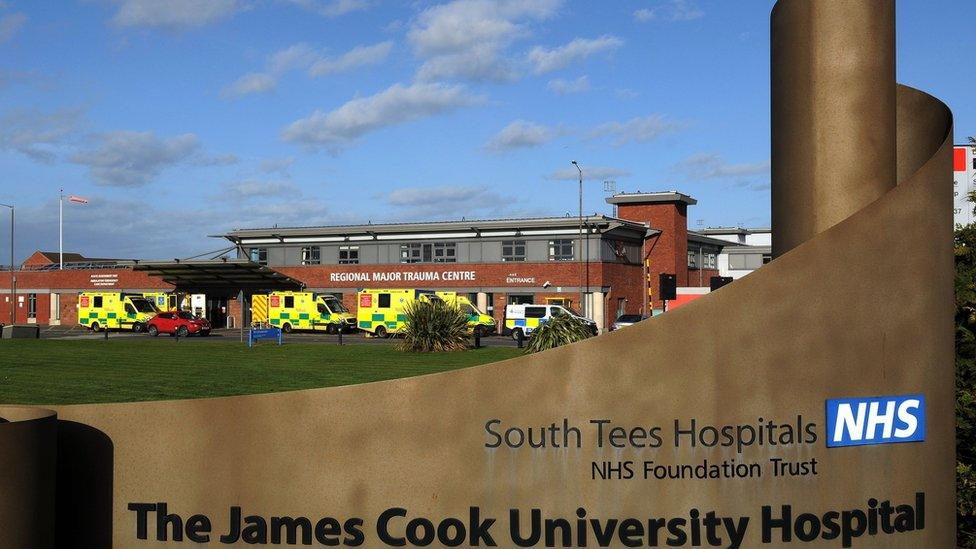Patients at risk as maternity staff 'burned out'
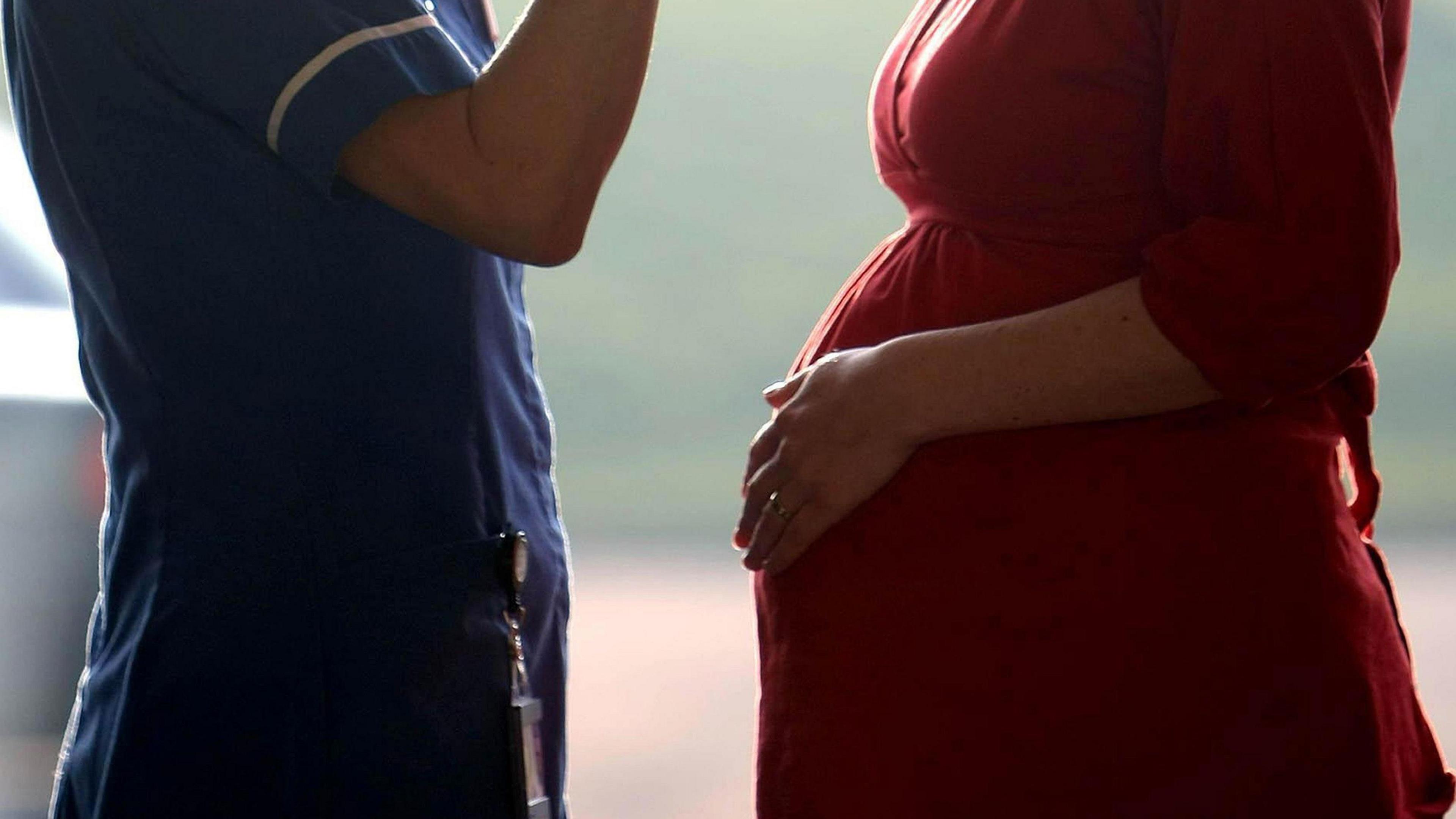
The Care Quality Commission ordered James Cook University Hospital to make improvements to maternity services
- Published
Patients are at risk on maternity wards at Middlesbrough's James Cook University Hospital, a watchdog found.
Staff shortages, security concerns, inadequate surroundings and delays to care are among failings highlighted in a Care Quality Commission (CQC) report.
Overstretched midwives are struggling to give mothers and babies the care they need, the CQC suggests.
Inspectors, who gave the maternity unit a "requires improvement" rating, also found several areas of "outstanding" practice.
A South Tees Hospitals NHS Trust spokesman said changes have been made since last August's inspection of maternity services.
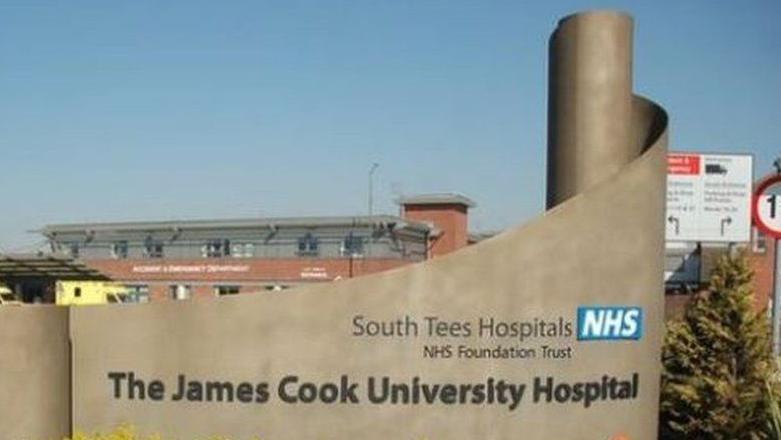
Staff at the hospital were praised for working together to benefit patients
While James Cook University Hospital's (JCUH) overall rating with the CQC is "good", inspectors said improvements must be made in its maternity wing in order to meet legal obligations.
The inspection uncovered understaffed wards and lengthy waits for patients needing to see a doctor.
"Staff told us they did not get breaks," the report said.
"They were rarely fully staffed and were burned out."
Inspectors also heard staff did not feel they had enough resources to run elective Caesarean lists safely.
"Staff felt the volume and pace of work involved meant there was potential for things to be missed and mistakes made with this level of staffing".
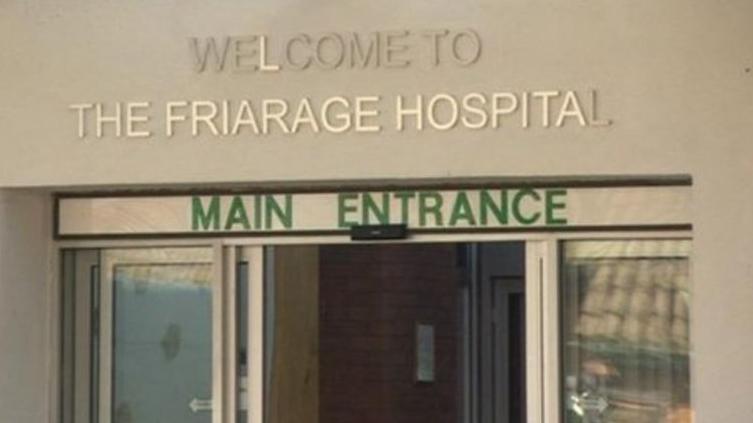
Northallerton's Friarage Hospital regularly sent staff to James Cook University Hospital
In a year, 105 "red flag" staffing incidents - meaning something may be wrong with midwifery staffing levels - were recorded; the equivalent of two a week.
Delayed inductions of labour counted for 102 of them.
Staff shortages were so prolific at JCUH that midwives from its sister service at The Friarage Hospital in Northallerton were regularly drafted in.
This directly contributed to the Friarage - which was also given a requires improvement rating by the CQC - closing to new births 121 times between July 2022 and July last year.
In the same period, the maternity unit at JCUH closed seven times.
Security fears
The design of JCUH's maternity unit did not always meet standards set out in national guidance, to the point the estate was said to be "affecting the ability of staff to care for patients effectively".
There was a lack of suitable equipment available to be used if an emergency evacuation was required which, the report said, put both staff and women at risk.
Security concerns around the maternity department were also highlighted as while entry to some wards was secure, exit from them was not.
Action the trust MUST take to improve includes the following:
Ensure staff complete training
Ensure all governance and risk concerns are followed up and any mitigations applied are effective and reviewed
Address the environmental and equipment shortfalls that affect the "safety, privacy and dignity of women, birthing people and babies"
Ensure the on-call rota is effective and there is no overreliance on specialist midwives
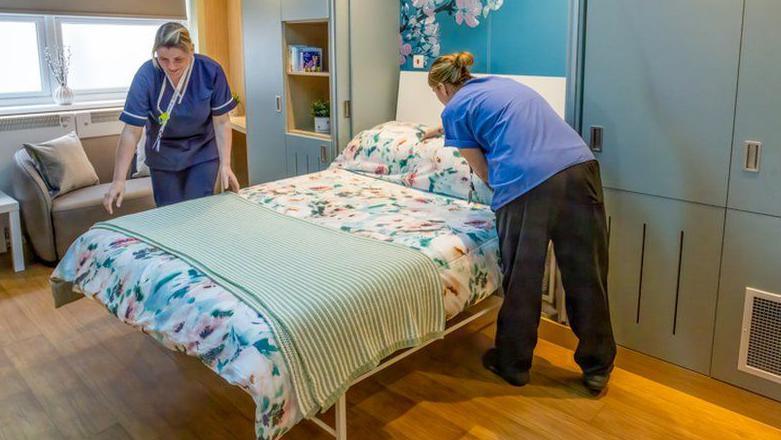
The introduction of a bereavement suite on the unit was highlighted by inspectors
Among the positive findings in the report was praise for how staff worked together for the benefit of women and understood how to protect them from abuse.
Areas of outstanding practice included the creation of memory boxes for those whose baby was going into care.
Carolyn Jenkinson, CQC's deputy director of secondary and specialist care, said leaders were "highly responsive" and acted promptly to improve standards of care in relation to concerns raised by inspectors.
Improvements are reportedly under way at the trust, including ongoing recruitment and improvements to the building and environment, with plans to install a new birthing pool in progress.
Dr Deepika Meneni, clinical director for the Trust's maternity services said maternity staff are "dedicated to providing the best possible care".
She added: "We are proud of our team for the hard work, professionalism and caring attitude that they show each day."
Follow BBC Tees on X (formerly Twitter), external, Facebook, external and Instagram, external. Send your story ideas to northeastandcumbria@bbc.co.uk.
More stories from BBC North East and Cumbria
- Published29 October 2022
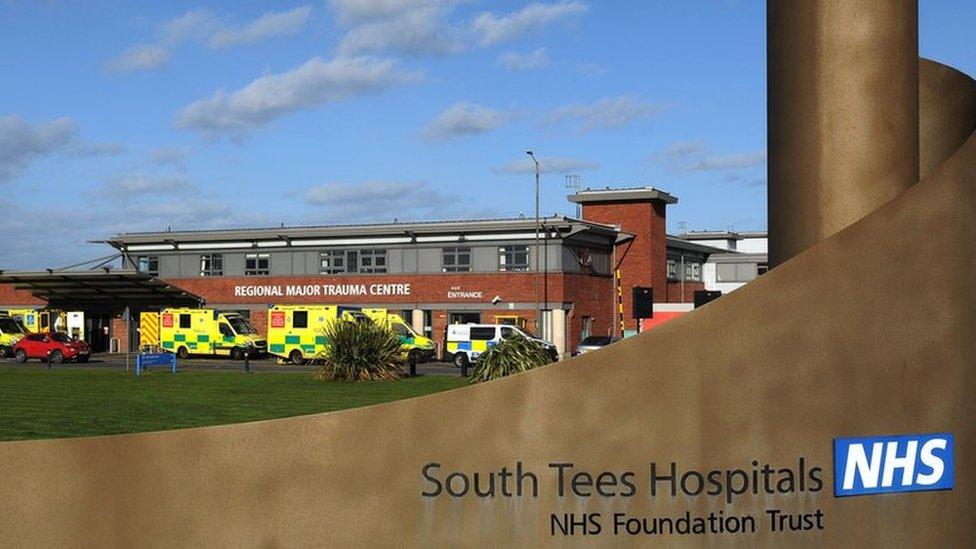
- Published25 May 2022
